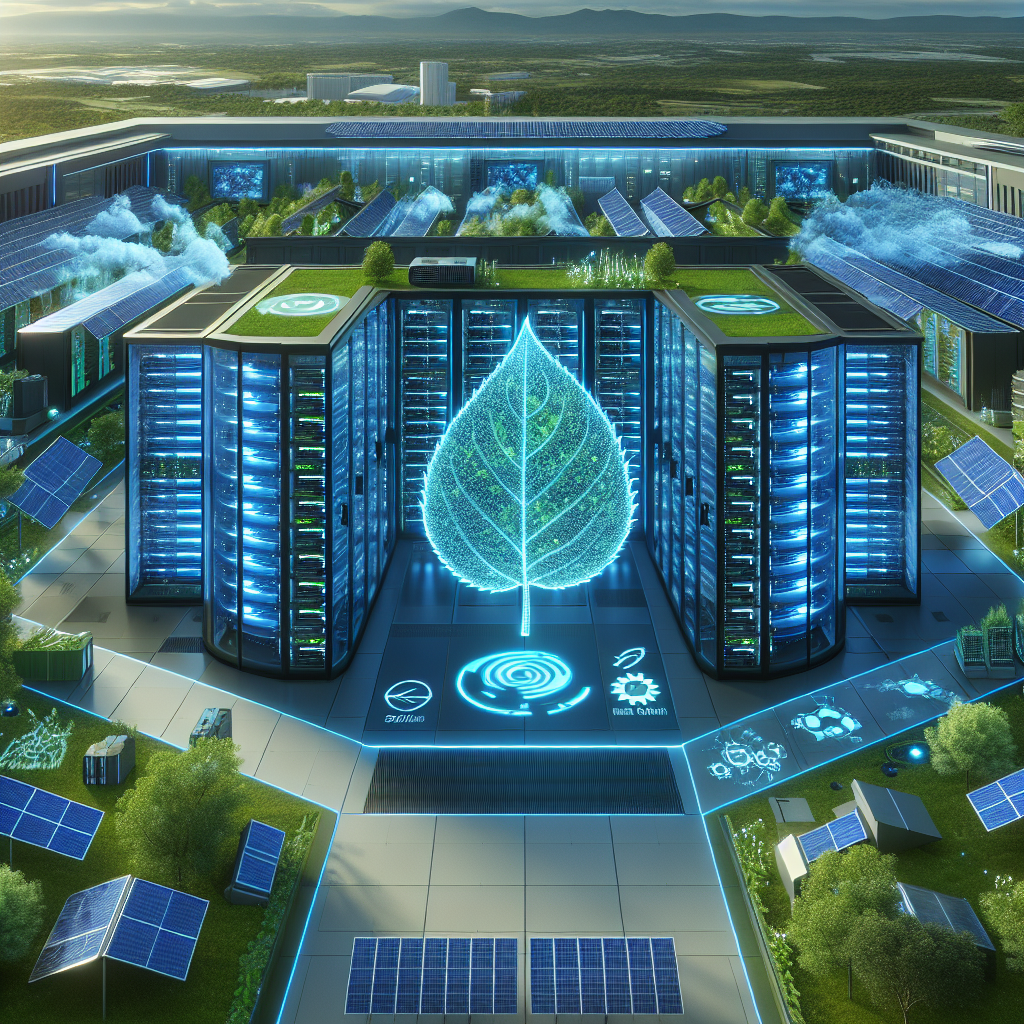Your cart is currently empty!
Building a Greener Future: Advancements in Data Center Sustainability

In today’s digital age, data centers play a crucial role in storing, processing, and managing the vast amounts of data that power our modern society. However, the environmental impact of data centers has become a growing concern as their energy consumption continues to rise. In response to this challenge, advancements in data center sustainability are paving the way for a greener future.
One of the key factors driving the push for sustainability in data centers is the increasing demand for computing power. As more and more businesses and individuals rely on data centers for their digital operations, the energy consumption of these facilities has skyrocketed. In fact, data centers are projected to consume 8% of global electricity by 2030 if current trends continue.
To address this issue, data center operators are implementing a variety of strategies to reduce their environmental footprint. One of the most effective ways to improve sustainability is through energy-efficient design and operation. This includes using energy-efficient servers, cooling systems, and lighting, as well as implementing power management software to optimize energy usage.
Another important aspect of data center sustainability is the use of renewable energy sources. Many data centers are now powered by solar, wind, or hydroelectric energy, reducing their reliance on fossil fuels and lowering their carbon emissions. Some data centers have even achieved net-zero energy consumption by generating more renewable energy than they consume.
In addition to energy efficiency and renewable energy, data centers are also exploring innovative cooling technologies to reduce their environmental impact. Traditional cooling systems can be extremely energy-intensive, but advancements in liquid cooling, free cooling, and other cooling technologies are helping data centers minimize their energy consumption and carbon footprint.
Furthermore, data centers are increasingly focusing on recycling and reusing waste heat generated by their operations. By capturing and repurposing waste heat for heating buildings or generating electricity, data centers can further reduce their environmental impact and contribute to a circular economy.
Overall, the advancements in data center sustainability are promising for building a greener future. By embracing energy efficiency, renewable energy, innovative cooling technologies, and waste heat recovery, data centers can significantly reduce their environmental footprint and contribute to a more sustainable world. As the demand for data continues to grow, it is essential that data centers prioritize sustainability to ensure a more environmentally friendly digital infrastructure for future generations.

Leave a Reply